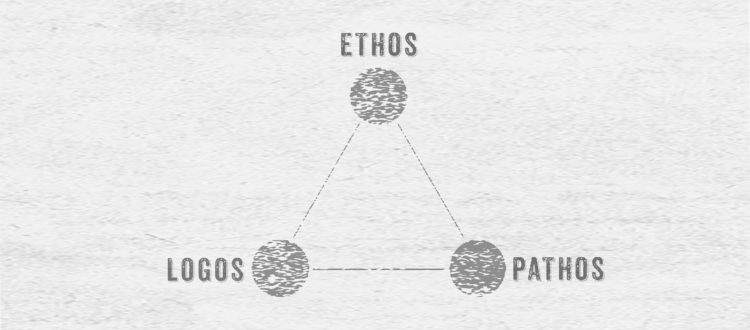On Controversy and Rules of Persuasion
John Newton once wrote a letter on rules of controversy to a fellow minister who informed him of his intention to confront another minister about that minister’s supposed unorthodox doctrine. In this letter, Newton warned the man to 1) consider his opponent, 2) consider the public, and 3) consider himself prior to entering into the fray of theological debate. This sage counsel continues to bear fruit, in a day of internet outrage and trigger happy polemics. No matter the theological issue, we can be sure that a litany of quick-fire responses often only exacerbate the issue for those who are in need of biblical instruction and theologically nuanced clarity. To that end, I would suggest that the antiquarian tripartite modes of persuasion (i.e. ethos, logos, and pathos) are helpful when seeking to engage in theological controversy.
Ethos is an appeal to the ethical character of the person with whom we are debating. Logos is an appeal to the logic or reason of the arguments raised by the person with whom you are debating. Pathos is an appeal to the emotions of the people to whom you are appealing. So much debate that we witness in our day–or in which we are presently engaged–is built on differences about the propriety or measure of the ethos, logos or pathos with which we debate a matter. One might agree with the logos of the argument of another regarding theological debate while disagreeing with the strength of their argumentation in the realm of ethos and pathos. Another may agree with the logos and pathos of someone’s argument without agreeing with his or her argumentation of ethos. Still, another may agree with the logos and ethos of an argument, while rejecting the pathos with which one debates a matter. This, it seems to me, is at the heart of so many of our present controversies.
In a day of polarization and politicization, it is easy for any to fall into the trap of speaking of all proponents of any given issue as if they are the most extreme proponents of that issue. It is equally easy for any to fall into the trap of minimizing the extreme end of any group on any given controversial subject. It may be that the collectivization of agendas has created a nearly indistinguishable spectrum on which proponents fall. But, it is equally plausible that we willfully refuse to acknowledge the nuances of adherents of any given debate.
When we consider the theological debates in which the Apostles were involved, we must quickly come to terms with the fact that their opponents were presenting coherent attacks on the truth. To that end, whatever the attack on sound doctrine may have been, the Apostle met the threat with a measure commensurate with the attack. For instance, when the Gospel was clearly threatened by the Judaizers who were insisting that we are justified (i.e. obtain a right standing before God) by faith in Christ and our adherence to the law of God, the Apostle Paul pulled no punches. He was as polemical as he could be to defend the truth of the Gospel against the sophistry of these false teachers (Galatians 1-2). However, when the church in Rome had debates over Christian liberty, the same Apostle urged the stronger brethren not to despise the weaker brethren and he urged the erring weaker brethren not be judgmental toward the stronger brother (Romans 14). It was not a compromise for the Apostle Paul to tone down his rhetoric over the issue of liberty of conscience. It was an appropriate use of ethos and pathos, without in anyway whatsoever diminishing the logos of the issue.
I certainly have no desire to give a checklist for times when our pathos should appropriately rise to the level of our concern about the logos of a matter. Neither do I have an interest in setting out a checklist to safeguard the way in which we juxtapose the ethos we employ with our own perception of the seriousness of the matter of the logos of an issue. I do, however, believe that it is incumbent on us to distinguish between the way in which we exercise ethos, logos and pathos in the debates that we have in the church. Of course, we need the wisdom of God in the Scripture to guide us into a right use and proportioning of these elements as we seek to be faithful in the defense and the propogation of the Gospel.




Thank you so much for this reminder to all us, but especially to me.
Pingback : Links To Go (August 21, 2019) | The Kitchen of Half-Baked Thoughts
Pingback : Handling Controversy With Rules of Persuasion